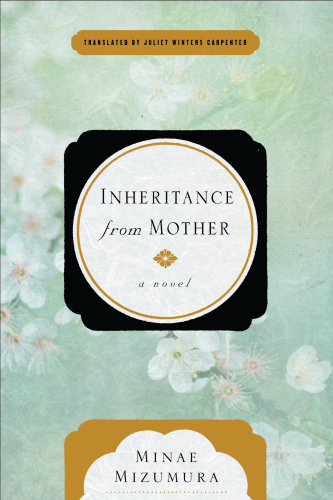
Inheritance from Mother
A Novel
کتاب های مرتبط
- اطلاعات
- نقد و بررسی
- دیدگاه کاربران
نقد و بررسی

March 13, 2017
Mizumura (A True Novel) upends the paradigm of the Japanese mother-daughter relationship in this complex novel. Mitsuki and her older sister, Natsuki, both married with complicated lives, grapple with their mother Noriko’s declining health. Because she’s been a difficult, demanding, selfish mother her whole life, they look forward to her demise. Mitsuki is childless and bears the burden of their mother’s care, which is made more problematic because Noriko, now in her 80s, has always favored Natsuki. Further, Mitsuki has discovered not only a third instance of her husband’s infidelity but also that he is planning to divorce her. She takes a break from her life, staying at a renowned Hakone hotel, where, thanks to a psychic friend, one of the guests believes that someone in their midst will commit suicide. The author demonstrates that what appears calm on the surface can hide unimaginable depths of despair. In this compelling exploration of family history and its impact on relationships and traditions, Mizumura offers insight into how Japanese culture and shows how two daughters can survive the damage wrought by an onerous parent.

March 1, 2017
In a novel of female endurance and obligation, Mitsuki, the "semi-neglected daughter" of the Katsura family, must not only bear the lion's share of caring for her elderly parents, but must also steel herself for the failure of her marriage."She won't do us all a favor and die" is one of the many shameful but exquisitely truthful thoughts shared by the Katsura daughters, Mitsuki and Natsuki, about their mother, Noriko, in this understated anatomization of intense family feelings. Noriko, who not only favored Natsuki, but also treated the girls' father with repellent callousness when his health began to fail, has grown into a self-indulgent, demanding old woman who hangs onto existence, dominating Mitsuki's life in particular. Distinguished Japanese writer Mizumura (The Fall of Language in the Age of English, 2015, etc.) traces this agonizing phase, and all the generational circumstances and feelings prefiguring it, in the novel's first half before moving on to a more contemplative second half set in a country hotel where Mitsuki has taken refuge both to recuperate from her mother's eventual death and also, now, to confront her other preoccupation--her husband's latest infidelity and the likelihood of divorce. An "homage to the dying tradition of serial novels" according to a note at the beginning of the book, it's narrated in brief, simple chapters, the tone even and mature as it delves into the unhappiest, most intractable corners of a middle-aged woman's life and psyche. Questions about love, money, and female choices are posed amid contrasts with earlier generations of women and altered expectations following World War II. The novel has an unblinking focus which accumulates to near-claustrophobic proportions, yet the decisions finally made by Mitsuki arrive with a persuasive sense of late-life liberation. A long, minute, subtle consideration of aging, loyalty, and the bonds of love grounded in the material details of Japanese culture but resonating far beyond.
COPYRIGHT(2017) Kirkus Reviews, ALL RIGHTS RESERVED.

May 1, 2017
Death brings excitement . . . keen and palpable to two sisters, knowing that their mother was finally dead. Natsuki and Mitsuki aren't heartless. They're bluntly forthright in their relief after being burdened by their mother's constant needs and wants. The immediate demands as caretaker ironically distract younger sister Mitsuki from the disintegration of her marriage to a philandering husband. A financial inheritance amplifies the sisters' sense of freedom, especially for Mitsuki, a part-time translator and language teacher, who pragmatically narrates acclaimed Japanese writer Mizumura's (A True Novel, 2013) latest novel, adroitly translated by Juliet Winters Carpenter. Originally serialized in Japan's Yomiuri Shimbun (201011), this is an homage to the dying tradition of serial novels, most notably Ozaki Koyo's late-nineteenth-century classic, The Golden Demon, and Gustave Flaubert's Madame Bovary; serialization understandably accounts for narrative repetition here. Mizumura revealed in a New York Times op-ed that her own filial frustrations inspired Inheritance. As increasing longevity continues to challenge parent-child relationships, Mizumura deftly, albeit shockingly, explores fraying bonds, disgruntled entitlement, and the ever-elusive quest to be happy.(Reprinted with permission of Booklist, copyright 2017, American Library Association.)

























دیدگاه کاربران